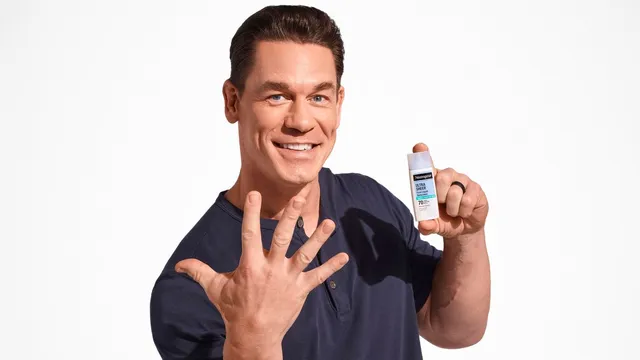
John Cena reveals shocking skin cancer battle
2025-04-02 11:21- John Cena was diagnosed with skin cancer twice.
- He advocates for the importance of sunscreen and skin health awareness.
- His collaboration with Neutrogena focuses on encouraging sunscreen usage.
Express your sentiment!
Insights
John Cena, the renowned WWE star and actor, has bravely opened up about his battle with skin cancer, revealing that he was diagnosed twice in the past. Growing up in Massachusetts during the 1970s and 1980s, Cena shared that he never wore sunscreen, leading to significant sun exposure without protection. Despite enjoying outdoor activities, his negligence towards skin health would later catch up with him, prompting a visit to a dermatologist for a routine check-up. During this visit, a cancerous spot was removed from his chest, marking the beginning of a pivotal change in his approach to skincare. A year later, Cena faced another diagnosis as he had a second cancerous spot removed from his right shoulder, resulting in visible scars that WWE fans can see during broadcasts. Cena described the initial diagnosis as a shocking moment that altered his perspective on skincare. Following this experience, he became vocal about the importance of sunscreen, advocating for public awareness and education regarding skin health and safety. This transformation in Cena’s outlook demonstrates his commitment to sharing vital information to prevent others from facing similar struggles. In collaboration with Neutrogena, Cena has participated in a campaign titled 'Sunscreen You Can't See,' leveraging his public persona to encourage proper sun protection habits, especially among younger audiences. Through this partnership, he highlights the effectiveness of Neutrogena's Ultra Sheer sunscreen, which provides strong protection without leaving a visible residue on the skin. Cena urges individuals to incorporate sunscreen into their daily routines, emphasizing that it is crucial to prioritize skin health to live a longer, healthier life. With his new advocacy efforts taking center stage alongside his wrestling career, Cena reflects on his earlier stubbornness about sunscreen use, recognizing that such neglect comes with dire consequences. He encourages everyone to view sunscreen as an essential part of personal care, akin to brushing teeth—a simple step that can prevent painful and potentially life-threatening conditions. His journey has become not only a personal testament but also a platform for raising awareness, ultimately aiming to inspire others to pursue skin safety diligently and regularly.
Contexts
Sunscreen usage is critical in maintaining healthy skin and preventing skin-related issues, particularly skin cancer. The primary function of sunscreen is to provide a protective barrier against harmful ultraviolet (UV) radiation emitted by the sun. There are two types of UV radiation: UVA, which contributes to skin aging and the formation of wrinkles, and UVB, which is primarily responsible for sunburn and plays a significant role in the development of skin cancer. Regular application of sunscreen, with broad-spectrum protection against both UVA and UVB rays, can significantly lower the risks associated with sun exposure. Health authorities recommend using a sunscreen with an SPF of at least 30 for adequate protection, applied generously and re-applied every two hours or immediately after swimming or sweating. In addition to its role in cancer prevention, regular use of sunscreen can mitigate other negative effects of sun exposure, such as hyperpigmentation, uneven skin tone, and premature aging. Daily application is beneficial even on cloudy days or during winter months, as UV rays can penetrate cloud cover and reflect off surfaces such as water, sand, and snow. An appropriate sunscreen helps to maintain an even skin tone and contributes to improved long-term skin health, allowing individuals to enjoy outdoor activities while minimizing risks associated with sun exposure. It is also crucial to recognize that sunscreen alone is not a comprehensive protective strategy. It should be used in conjunction with other sun safety measures, such as wearing protective clothing, seeking shade, and avoiding peak sun hours, typically from 10 a.m. to 4 p.m. By adopting a holistic approach to sun safety, individuals can maximize their protection against harmful UV radiation. Awareness campaigns emphasizing the importance of sunscreen and sun protective behaviors are vital in educating the public and fostering a culture of skin health vigilance. In conclusion, the significance of sunscreen usage cannot be overstated. The long-term benefits of using sunscreen consistently include reduced skin cancer risks, prevention of premature aging, and overall skin health enhancement. Individuals should prioritize integrating sunscreen into their daily skincare routines and embrace comprehensive sun safety habits to promote skin integrity and overall health. Public health initiatives should continue to advocate for awareness and education surrounding the proper use of sunscreen and sun protection strategies to address the rising incidence of skin cancer.